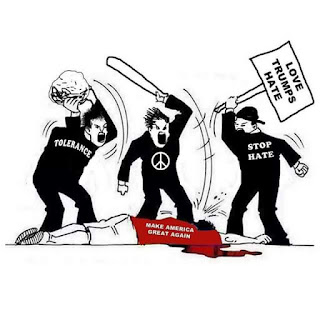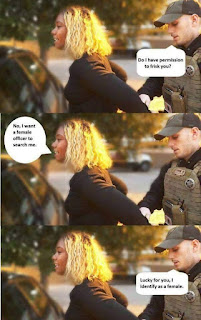Published on Apr 4, 2016: A Night In Cologne: The New Year's Eve celebrations that changed Germany's attitude to refugees
Now this is me talking, don't conflate "refugees" that genuinely need our help with millions of YOUNG able bodied Islamist men leaving their nations to collect welfare in European nations. There is a huge difference. ALL of these so-called "migrants" or "refugees" DO NOT come from Syria as the media would like everybody to think. (emphasis mine)
Grrr...😡 CNN Uses Germany Attack To Bash The Right #Islam #sharia #Necromongers https://t.co/ENWUEPhepw via @DailyCaller— GlobalAwareness101 (@Mononoke__Hime) December 20, 2016
Article: "German authorities more concerned about Islamic sensitivities than murdered Germans." https://t.co/PLy3zxRbOk pic.twitter.com/ONhwI4DJj8— Islam Talk (@WNTTAI) December 22, 2016
The Local, Germany
written by AFP, DPA, The Local staff
Tuesday December 20, 2016
The day's events from Berlin after a truck ploughed into a Christmas market on Monday night, killing 12 people and injuring 48.
What we know so far:
- A large truck drove into a crowded Christmas market in west Berlin at around 8.30pm on Monday evening.
- So far 12 people have been confirmed dead, and 48 have been injured. Over a dozen are in a critical condition.
- Police confirmed they believe the attack was deliberate, but said on Tuesday they might have arrested the wrong man.
- Prosecutors have now released the suspect.
- Police are telling Berliners to stay alert and to call them if they see anything suspicious.
- Chancellor Angela Merkel has said the attack was presumably an act of terrorism.
- Isis has claimed responsibility for the attack.
RT @jihadwatchRS Berlin truck attack: Merkel was warned weeks ago by US State Department https://t.co/rXpCqSHLjY #Germany #Islam #sharia— GlobalAwareness101 (@Mononoke__Hime) December 20, 2016
The Daily Caller, USA
written by Saagar Enjeti
Thursday December 22, 2016
Suspected terrorist Anis Amri was a known criminal and potential terrorist to several Western intelligence agencies before plowing a stolen truck into a Berlin Christmas market Monday.
Amri is a Tunisian refugee who may have entered Europe as early as 2011. Italian media reports he spent four years in an Italian jail before taking advantage of Germany’s open door policy for refugees. After arriving Amri associated with a known terrorist, and was placed under surveillance for allegedly trying to buy an automatic weapon. He made his livelihood dealing drugs, and was eventually taken off the surveillance list.
Amri was then scooped up in an operation against a prolific ISIS sympathizing preacher, who he previously fell under the spell of. German authorities rejected Amri’s asylum application but did not deport him because the Tunisian government refused to confirm his identity. Amri was subsequently released, and allowed to remain unmolested in Berlin for months.
Along the way Amri was considered so dangerous by U.S. intelligence agencies, he was at one point on a U.S. no-fly list. U.S. officials also say he communicated with the Islamic State via secure messaging apps, and had done research on how to build a bomb.
Amri fell under the spell of a prolific ISIS sympathizing cleric during his time in Germany, and was reportedly given two options. The first option was to join the ISIS caliphate in Iraq and Syria, and the second was to carry out an attack in Germany.
Amri hijacked a Polish steel truck Monday, killing the driver in a prolonged struggle. He eventually got the truck started before eventually getting started. The truck’s GPS route indicates he knew exactly the route to take, and jumped the curb as soon as he got close enough to his selected market.
The polish truck driver’s body was found in the cab after Amri fled. His wife told local media he had hoped to finish his delivery’s early and spend Christmas with his family.
Amri remains at large, with a $100,000 bounty.
Sky News, Australia
written by Staff
Friday December 23, 2016
Anis Amri remained on the run for four days after the attack, managing to escape from Germany and travel to France and Italy.
It is "really worrying" that the Berlin lorry attacker was able to travel across Europe amid a continent-wide manhunt, experts have told Sky News.
Anis Amri was killed in a shootout with police in the Italian city of Milan on Friday morning - four days after his rampage left 12 dead.
Amri, who pledged allegiance to Islamic State, was able to get out of Germany after the attack.
Italian police said he had travelled by train to Chambery in France, and then to Turin in Italy.
The 24-year-old arrived at Milan's Central Station at 1am on Friday, and then made his way to the suburb of Sesto San Giovanni, where he was shot dead.
Amri pulled a gun from his backpack after being asked to show his identification, with the officers initially unaware of who he was.
Germany is part of the Schengen zone, which allows passport-free travel between most EU states, a deal the UK is not a part of.
But Chris Phillips, former head of the National Counter Terror Office, told Sky News the ease by which he slipped out of the country was "really worrying" and "a sign of the times".
"We've seen this in the past with the Paris attackers making their way back to Brussels without any difficulty at all. It's a big problem," he said.
Tony Smith, former director general of the UK's border force, echoed the concerns.
He told Sky News: "He had no ID documents after the event, there was a full manhunt in place and nonetheless he was able to cross two or three borders before he was eventually apprehended and even then really on the basis of more of a suspicious routine stop rather than an intelligence-led operation.
"So, it does beg the question, what is the Schengen group going to do about their borders?
"And in particular, how are they going to respond to critical incidents like this in the future?"
Former UKIP leader Nigel Farage and the leader of France's National Front, Marine Le Pen, have demanded the EU scraps freedom of movement in the aftermath of the attack.
Mr Phillips said Germany, France and Belgium have "serious problems" when it comes to monitoring terrorists.
Talking about Germany, he said: "They want to be a very free, open, democratic society - of course we all do - but they've got a natural disinclination to have things like CCTV cameras and the arms of the state that actually do protect you in times of terrorism."
Mr Phillips added: "If you think back to the London attacks, we were able to follow the suspects right back to the start of their journey, right back to their car journey when they were in the petrol station filling up with petrol and we knew from that who these people were and what they were on their way to do."





































No comments:
Post a Comment